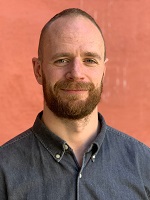Due to copyright issues, a copy of the thesis must be ordered from the faculty. For the faculty to have time to process the order, the order must be received by the faculty at the latest 2 days before the public defence. Orders received later than 2 days before the defence will not be processed. After the public defence, please address any inquiries regarding the thesis to the candidate.
Click here to stream the public defence
Trial Lecture – time and place
See Trial Lecture.
Adjudication committee
- First opponent: Professor emerita Susan Stryker, Arizona University/Mills College
- Second opponent: Professor Teemu Ryymin, University of Bergen
- Third member and chair of the evaluation committee: Professor Hilde Bondevik, University of Oslo
Chair of the Defence
Professor Kari Nyheim Solbrække, Faculty of Medicine, University of Oslo
Principal Supervisor
Associate Professor Anne Kveim Lie, Faculty of Medicine, University of Oslo
Summary
This dissertation in the history of medicine analyses how sex reassignment emerged as a clinical, scientific and bureaucratic practice in Scandinavia in the second half of the 20th century. Drawing on a range of sources, particularly from Norway, from public and private archives, medical records, scientific articles, newspaper articles and activist publications to oral history interviews with former patients, activists, doctors and psychologists, the dissertation examines how sex reassignment came into being in the context of the welfare state, in a space between the clinic, the laboratory, the bureaucracy, the press, activist organisations and communities. Using theoretical and methodological tools from science and technology studies and trans studies, the dissertation specifically explores the role of technology and practice: paper technologies, laboratory practices, psychological testing and the therapeutic practices of social medicine. Transgender medicine was not produced in the restricted sphere of the clinic but enrolled a range of actors in addition to doctors and other health professionals: patients, activists, bureaucrats, legal advisors and journalists. The main argument is that the Scandinavian context of the welfare state with a public healthcare system, a short distance between clinicians and authorities, informal networks between activists, communities and doctors and comprehensive epidemiological infrastructures shaped transgender medicine in a very different way than in, for instance, the US, where the market played a greater role and practice was more specialised. In Scandinavia, medical practices were moulded against a notion of “the social”. Doctors cared for the patient and for society – and for the patient in society. The goal was to integrate and readjust patients to society but also to protect the fabric of society. At the heart of a “sex change” was the concept of sex, and in the political project of creating and reforming the welfare state, the medical, legal and bureaucratic boundaries of sex were redrawn.
Additional information
Contact the research support staff.
